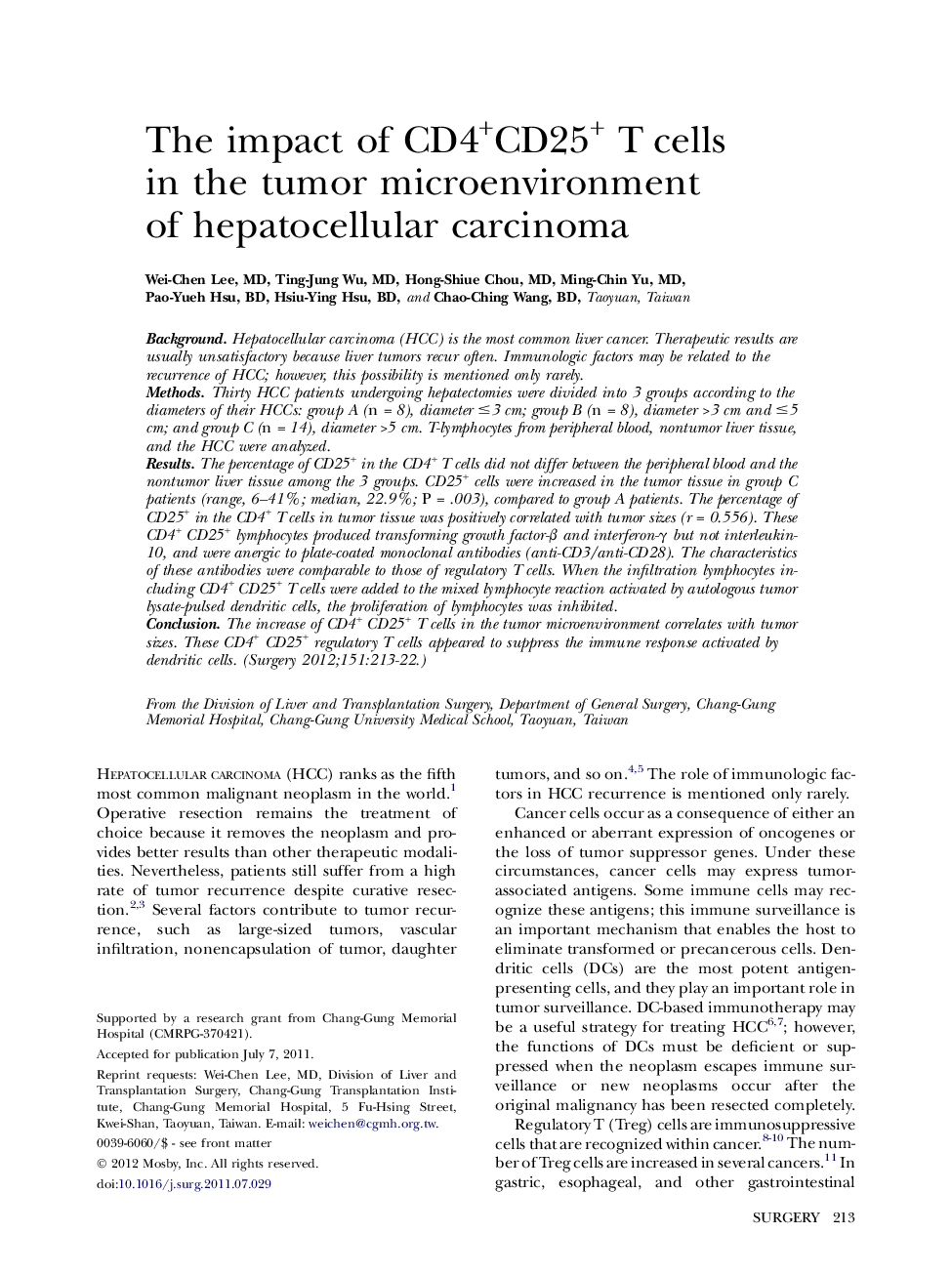| Article ID | Journal | Published Year | Pages | File Type |
|---|---|---|---|---|
| 4308203 | Surgery | 2012 | 10 Pages |
BackgroundHepatocellular carcinoma (HCC) is the most common liver cancer. Therapeutic results are usually unsatisfactory because liver tumors recur often. Immunologic factors may be related to the recurrence of HCC; however, this possibility is mentioned only rarely.MethodsThirty HCC patients undergoing hepatectomies were divided into 3 groups according to the diameters of their HCCs: group A (n = 8), diameter ≤3 cm; group B (n = 8), diameter >3 cm and ≤5 cm; and group C (n = 14), diameter >5 cm. T-lymphocytes from peripheral blood, nontumor liver tissue, and the HCC were analyzed.ResultsThe percentage of CD25+ in the CD4+ T cells did not differ between the peripheral blood and the nontumor liver tissue among the 3 groups. CD25+ cells were increased in the tumor tissue in group C patients (range, 6–41%; median, 22.9%; P = .003), compared to group A patients. The percentage of CD25+ in the CD4+ T cells in tumor tissue was positively correlated with tumor sizes (r = 0.556). These CD4+ CD25+ lymphocytes produced transforming growth factor-β and interferon-γ but not interleukin-10, and were anergic to plate-coated monoclonal antibodies (anti-CD3/anti-CD28). The characteristics of these antibodies were comparable to those of regulatory T cells. When the infiltration lymphocytes including CD4+ CD25+ T cells were added to the mixed lymphocyte reaction activated by autologous tumor lysate-pulsed dendritic cells, the proliferation of lymphocytes was inhibited.ConclusionThe increase of CD4+ CD25+ T cells in the tumor microenvironment correlates with tumor sizes. These CD4+ CD25+ regulatory T cells appeared to suppress the immune response activated by dendritic cells.
